Patcy N in Mumbai
Sonam Kapoor may have had easy access to tinsel town, thanks to her star father Anil Kapoor, but it took director Rajshree Ojha five years to see her dream come alive on the big screen.
Now, the 34-year-old probably can't wait to see how the audiences will react to her maiden commercial film Aisha.
Ojha tells Patcy N about her film, and herself.
Tell us about yourself.
I am from Kolkata but I grew up in Bangalore. I went to New York in 1994 to study computer science from America's Liberal Arts College but I landed up studying filmmaking as well. I made some short films at the New York University, and one of them Moment won many awards, including a student Oscar. After graduating in Computer Science, I did a Masters degree in film direction from the American Film Institute. I came to Mumbai in 2005.
I have always wanted to be a filmmaker. But I did not have the guts to tell my father. It took me a long time to convince him.
'I never thought of Aisha as a commercial film'
Image: A scene from AishaWhen I came back, I had a different sense of filmmaking. I still have that. The idea of story telling is not very pure in India. When you pitch your idea to the producer, the first question they ask you is who the cast is. I was disappointed with that. In America, your work speaks for you.
After making films like Chaurahen, what made you switch over to commercial filmmaking?
For me, a film is a film. I don't think of what is commercial and what is not. I made Chaurahen in 2005. I never thought it would not do well commercially. I thought people would understand and appreciate it.
I never thought of Aisha as a commercial film. I just thought that it had a very good story and I needed to tell it. But it was not easy. It's not like I pitched the idea today and it was picked up tomorrow. It took me five years to make people believe in it.
'The story of Emma is interesting and has never made in India before'
Image: A scene from AishaI approached many people -- it took me four and a half years to find a producer. But they told me to get the lead actor first. So I pitched the film to Sonam. Mr Kapoor liked the idea and said he would like to produce it. So I thought why not go with someone who would do better justice.
Sometimes it would get frustrating. You have to deal with so many rejections. But directors must keep believing in what they are doing and never get worked up.
What made you adapt Emma, which has already been done in Hollywood?
I did not think like that. We have remade so many films. Romeo and Juliet is made in every language but you still keep making it because it inspires you to give another twist.
For me, the story of Emma is interesting and has never made in India before. So I thought of making it.
'Aisha is a contemporary look at society'
Image: A scene from AishaIt is not very different from the book; the basic story is the same.
We have merged five-six characters into one character. We have taken a subplot from another Jane Austen novel, Pride and Prejudice.
Aisha is a contemporary look at society. There are a lot of similarities between Victorian England and today's (Indian) society because we are still balancing the modern and traditional path. The caste system has been replaced by the class system.
What was really difficult was the characters' lingo, and the feel of the place. I have lived this film for four and a half years, so it was not difficult for me.
'My next is a period film'
Image: A scene from AishaMy writer Devika is a friend of Abhay's. So we approached him.
My casting director Amita Saigal helped me with the other actors. We had seen an ad of Lisa Hayden's, and we liked her.
The most difficult character to cast was Harriet's, which has been played by Amrita Puri. Amrita is a very modern Mumbai girl but she worked so hard for the film. I'm very proud of her.
It was Rhea's idea to take Cyrus Sahukar.
Your next is a documentary on the Indian Independence and then the Emergency of 1975?
My next is a period film. I have finished the documentation for my research. I will make a fictional feature film based on that, set in the 1960s. I am still in the process of writing the script.

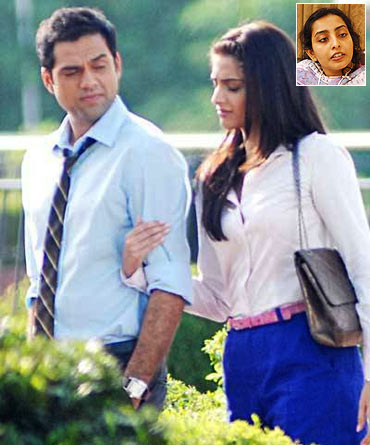
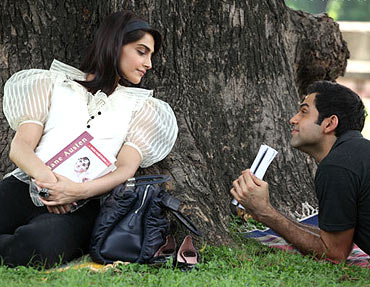
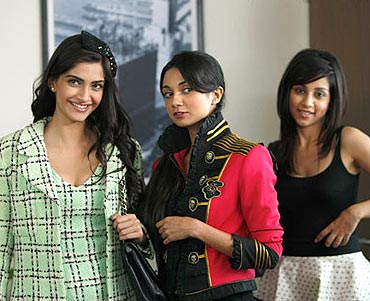
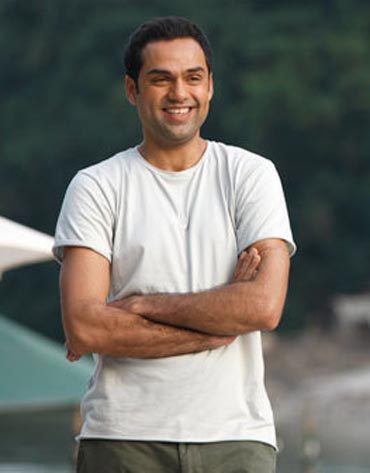
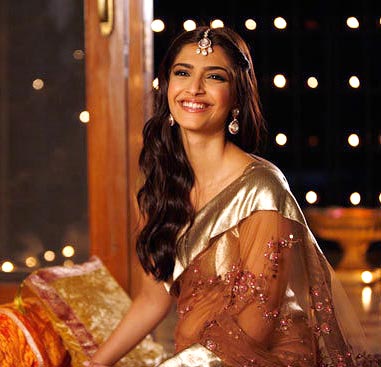
Comment
article